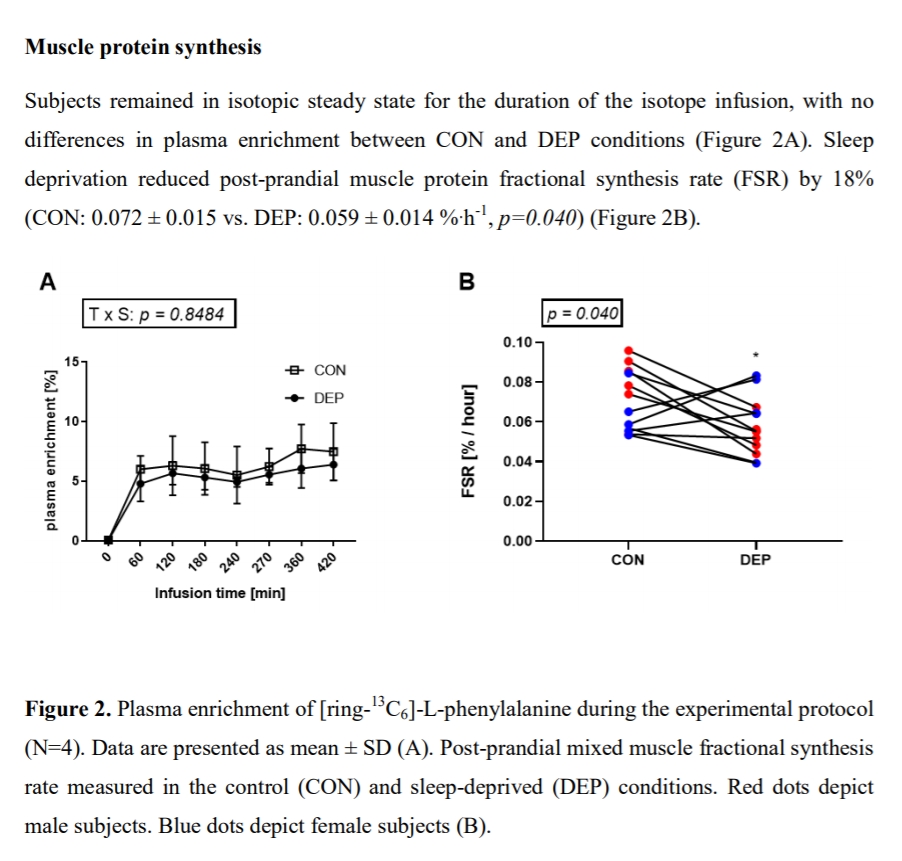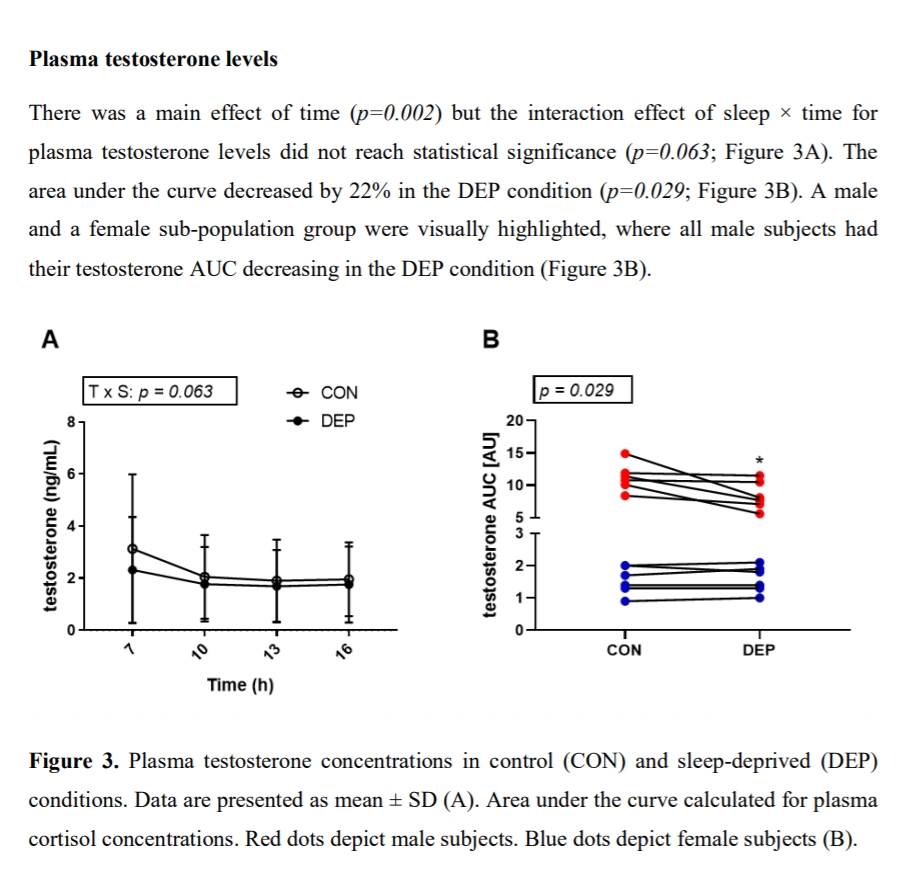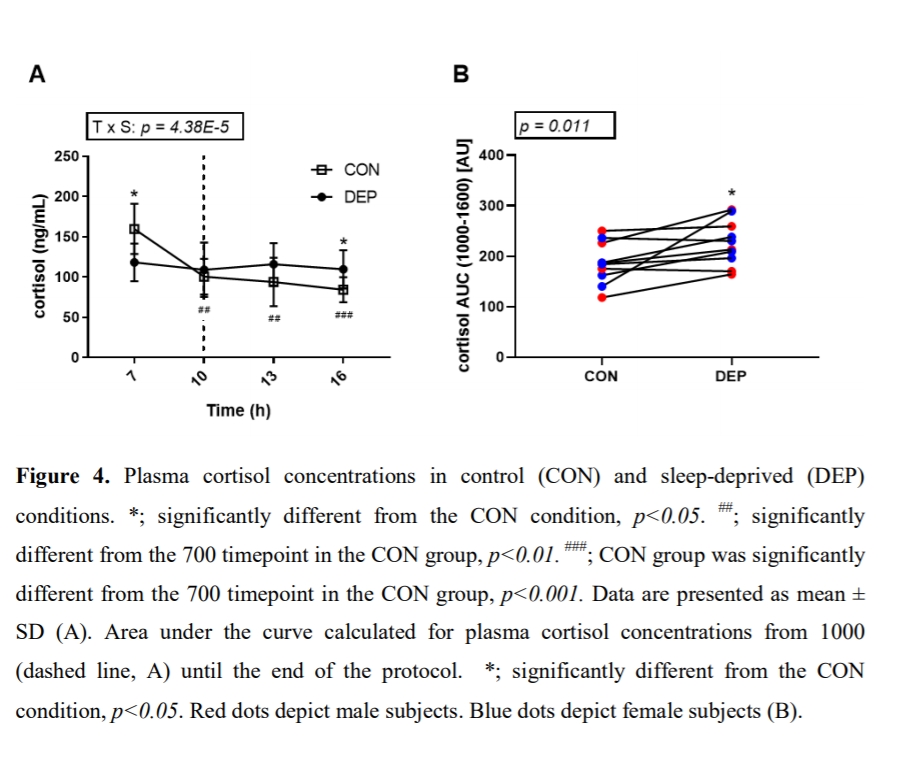The effect of acute sleep deprivation on skeletal muscle protein synthesis and the hormonal environment
Severine Lamon, bioRxiv posted 20 August 2020
Chronic sleep loss is a potent catabolic stressor, increasing the risk of metabolic dysfunction and loss of muscle mass and function. To provide mechanistic insight into these clinical outcomes, we sought to determine if acute sleep deprivation blunts skeletal muscle protein synthesis and promotes a catabolic environment.
Healthy young adults (N=13; 7 male, 6 female) were subjected to one night of total sleep deprivation (DEP) and normal sleep (idiot) in a randomized cross-over design. Anabolic and catabolic hormonal profiles, skeletal muscle fractional synthesis rate and markers of muscle protein degradation were assessed across the following day.
Acute sleep deprivation reduced muscle protein synthesis by 18% (idiot: 0.072 +/- 0.015 vs. DEP: 0.059 +/- 0.014 % per hour, p=0.040). In addition, it increased plasma cortisol by 21% (p=0.030) and decreased plasma testosterone, but not IGF-1, by 22% (p=0.029). A single night of total sleep deprivation is sufficient to induce anabolic resistance and a pro-catabolic environment. These acute changes may represent mechanistic precursors driving the metabolic dysfunction and body composition changes associated with chronic sleep deprivation.
















